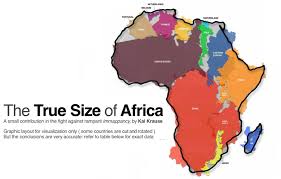-
11 February 2016
- From the sectionAfrica
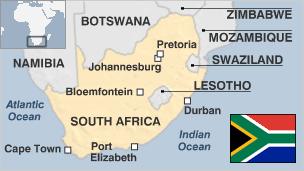
South Africa has one of the continent’s biggest and most developed economies.
Up until 1994 it was ruled by a white minority which enforced a separation of races with its policy called apartheid.
The apartheid government eventually negotiated itself out of power after decades of international isolation, armed opposition and mass protests.
The democratically-elected leadership encouraged reconciliation and set about redressing social imbalances.
FACTS
Republic of South Africa
Capital: Pretoria
- Population 50.7 million
- Area 1.22 million sq km (470,693 sq miles)
- Major languages 11 official languages including English, Afrikaans, Sesotho, Setswana, Xhosa and Zulu
- Religions Christianity, Islam, indigenous beliefs
- Life expectancy 53 years (men), 54 years (women)
- Currency Rand
LEADER
President: Jacob Zuma
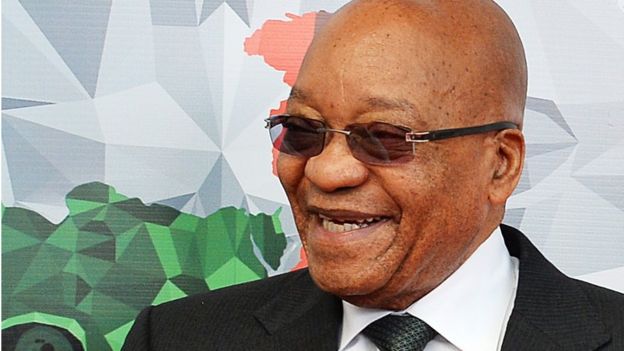 Image copyrightGetty Images
Image copyrightGetty ImagesThe leader of the ruling African National Congress party, Jacob Zuma, was chosen president by the newly-elected parliament in May 2009.
He has spent his entire adult life since 1959 in the service of the ANC. He joined its armed wing Umkhonto we Sizwe in 1962 and spent ten years in prison for conspiracy to overthrow the apartheid-era government.
After his release he left South Africa and was a leading figure in the ANC abroad until he returned home in 1990 to take part in the talks that brought apartheid to an end.
Mr Zuma has been at the centre of numerous controversies: He was named in a corruption case related to a major arms deal; he said he showered after sex with an HIV-positive woman to reduce his risk of being infected and he was accused of using public funds to make improvements to his private home at Nkandla.
MEDIA
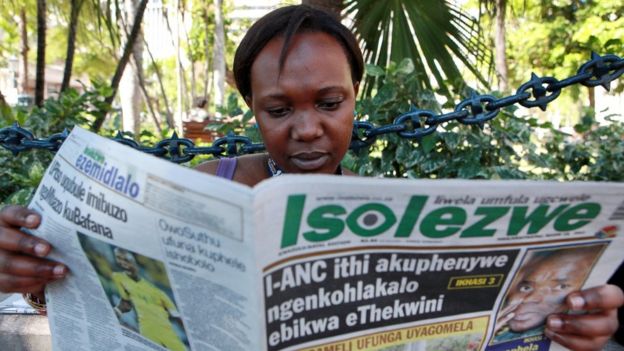 Image copyrightGetty Images
Image copyrightGetty ImagesSouth Africa is the continent’s major media player, and its broadcasters and press reflect the diversity of its people.
Established state-run and commercial TV broadcast nationally, and hundreds of thousands of viewers subscribe to satellite and cable. South Africa-based MultiChoice markets satellite pay-TV in dozens of African countries.
TIMELINE
Some key events in South Africa’s history:
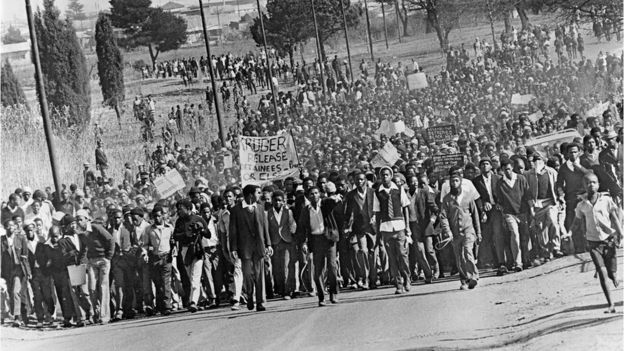 Image copyrightGetty Images
Image copyrightGetty Images1910 – Formation of Union of South Africa by former British colonies of the Cape and Natal, and the Boer republics of Transvaal, and Orange Free State.
1912 – Native National Congress founded, later renamed the African National Congress (ANC).
1948 – Policy of apartheid (separateness) is adopted when National Party (NP) takes power.
1960 – Seventy black demonstrators killed at Sharpeville. ANC banned.
1976 – More than 600 killed in clashes between black protesters and security forces during uprising which starts in Soweto. The challenge to white rule escalates over the years.
1991-1994 – Negotiated end to apartheid leads to first non-racial elections and formation of a Government of National Unity under Nelson Mandela.
2009 May – Parliament elects Jacob Zuma as president.
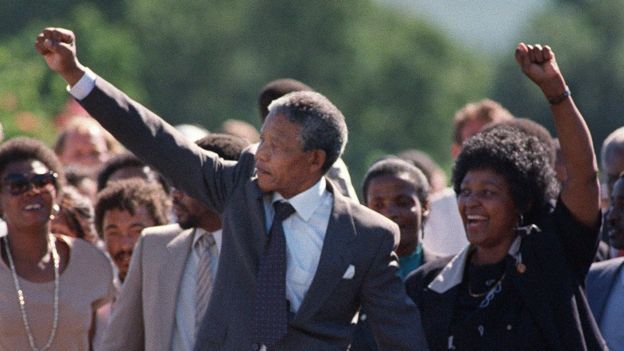 Image copyrightGetty Images
Image copyrightGetty Images
